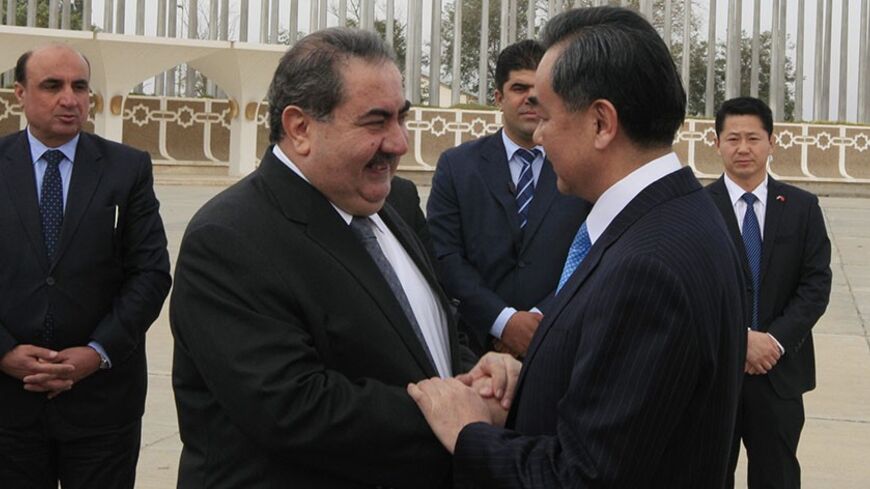Shortly after Russian Foreign Minister Sergey Lavrov left Baghdad last month, Chinese Foreign Minister Wang Yi visited on Feb. 23. These two visits seem to be the culmination of Iraq's path toward opening up to the East, which is embodied by growing political and economic relations with three key "Eastern" countries: Iran, Russia and China.
Less than two years ago, there was a near consensus among observers that Iraq lacked a unified foreign policy, because of deep internal divisions that made it difficult for its competing ethnic and sectarian parties to agree on a clear vision for the identity of the country and its foreign role. Consequently, according to this view, Iraq could not embrace a defined foreign policy without resolving its internal conflicts, and specifically could not identify a national identity that would help it define its geographic and cultural horizons and its foreign project.



